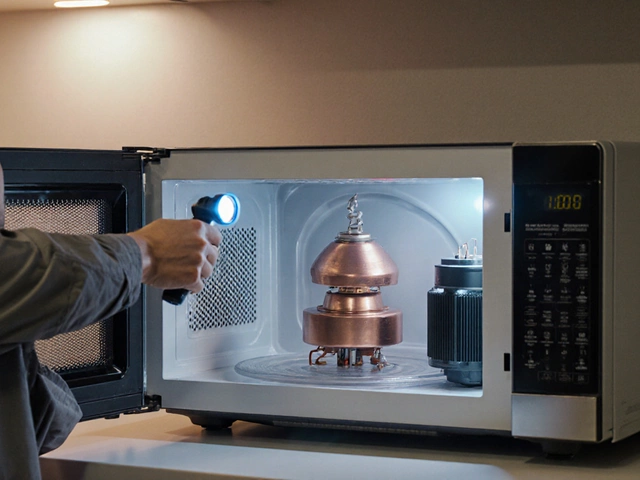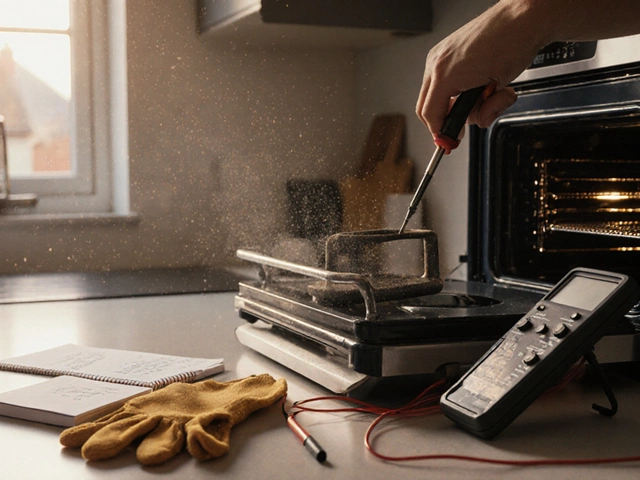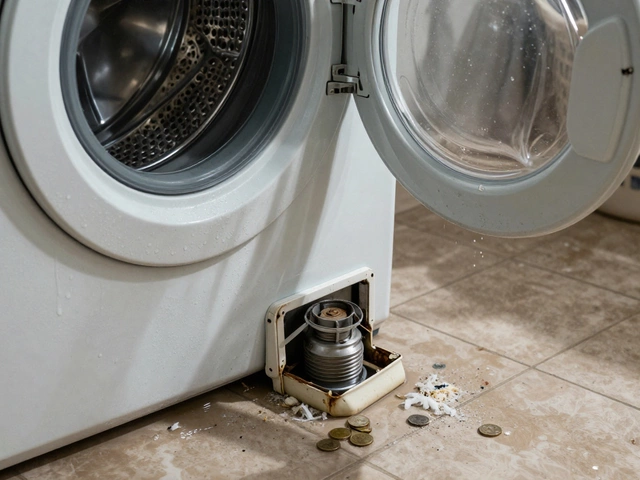Is Food Still Safe When the Freezer Stops Working?
April 10 2025Fan Noise Fix: Quick Ways to Silence a Loud Fan
If your kitchen extractor or ceiling fan suddenly sounds like a jet engine, you’re not alone. Most noisy fans are caused by something you can see and fix right at home. In this guide we’ll show you the most common reasons for fan noise and the step‑by‑step fixes that work for most households.
Common Reasons Your Fan Is Loud
First, figure out why the fan is screaming. The usual suspects are:
- Dirty blades or motor housing. Grease, dust, and cooking splatter can build up on the blades and make them wobble.
- Loose screws or mounting brackets. Vibration travels through loose parts and amplifies the sound.
- Worn bearings. Over time the motor bearings dry out or wear down, creating a grinding or whirring noise.
- Incorrect fan speed. A fan set too high for the airflow needed will strain the motor.
- Electrical issues. Loose wiring or a failing capacitor can cause humming or buzzing.
Knowing which of these applies will direct you to the right fix.
Easy Fixes to Quiet the Noise
1. Clean the blades. Turn off the power, remove the fan cover, and wipe each blade with a damp cloth. Use a soft brush to clear dust from the motor housing. Once everything is dry, re‑assemble and test.
2. Tighten all fasteners. Grab a screwdriver and check every screw on the fan housing, blade brackets, and mounting plate. Even a tiny loose screw can cause a lot of vibration.
3. Lubricate the bearings. If the fan is an older model, spray a few drops of light machine oil into the motor bearing (follow the manufacturer’s guide). Spin the fan by hand; it should move smoothly.
4. Adjust the speed setting. Reduce the fan to a lower speed if you’re using it for light ventilation. This eases the load on the motor and often drops the noise level dramatically.
5. Check the wiring. Look for any exposed wires or loose connections inside the housing. If you see anything odd, tighten the terminals. If the fan still hums, the capacitor may need replacement – a task best left to a qualified electrician.
After each step, turn the fan back on and listen. If the noise disappears, you’ve saved a call to a repair service. If it persists, the motor could be failing and you’ll need professional help.
When in doubt, especially with gas‑powered extractor fans, call a certified gas engineer. At Bedford Gas Appliance Repair Services we handle noisy fans, boiler issues, and any gas‑related appliance repair. Our engineers are trained to work safely on both electrical and gas components, so you won’t risk voiding warranties or harming yourself.
Remember, regular maintenance prevents most noise problems. A quick clean‑up once a month keeps grease from building up, and a yearly check of screw tightness saves you a lot of hassle. By following these simple steps, you’ll keep your fan whisper‑quiet and your kitchen or living space comfortable.
 6 Sep
6 Sep
Do Extractor Fans Need Maintenance? Simple Guide for Bathrooms & Kitchens
Yes-bathroom and kitchen extractor fans do need maintenance. This guide covers what to clean, how often, quick tests, common fixes, and when to repair or replace.
Read More...



